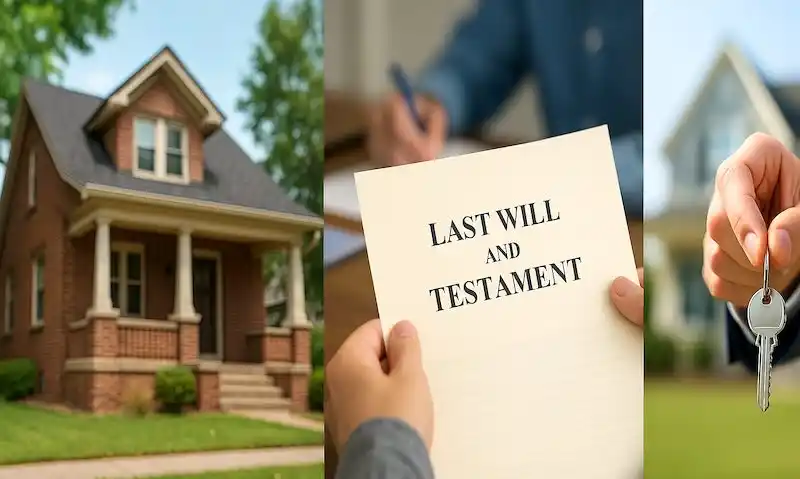Transferring property after someone dies is not always as simple as handing over the keys. Whether the home was in the decedent’s name, held in a trust, or passed through a Lady Bird or POD deed, the way property transfers after death has major consequences... not just for legal ownership, but also for insurance coverage, taxes, and liability.
If you’re an heir, executor, or fiduciary, understanding how probate and property transfers work can help you avoid costly mistakes and delays.
What Is Probate, and When Is It Required?
Probate is the legal process used to settle a person’s estate after they pass away. This includes identifying assets, paying debts, and distributing property to heirs. Whether a home needs to go through probate depends on how the title was held at the time of death.
Common scenarios:
- Sole ownership (in the decedent’s name only): must go through probate
- Joint ownership with right of survivorship: passes directly to surviving co-owner
- Held in a trust: bypasses probate and is distributed by the trustee
- POD or Lady Bird deed: transfers immediately to the named beneficiary, outside probate
Deed Type Determines Transfer Method
The type of deed or ownership on file at the time of death determines whether the property goes through probate and how it affects insurance.
Here are the most common scenarios:
Standard deed (sole ownership): If the property was in the deceased person’s name only, it will likely go through probate. The court will oversee the transfer to the heir or beneficiary. During this time, insurance coverage may lapse or become invalid if not updated.
Joint ownership with right of survivorship: Property held jointly with survivorship rights passes directly to the surviving owner. Probate is not required. However, the new owner must notify the insurance company and secure coverage in their own name.
Lady Bird deed or POD (Payable on Death) deed: These deeds are designed to bypass probate. They transfer ownership immediately at the time of death. This may sound convenient, but it can create serious insurance problems. Because the property technically leaves the decedent’s name at the moment of death, any existing homeowners policy may become invalid instantly.
Trust-held property: If the home was held in a living trust, it does not go through probate. The trustee handles the transfer according to the trust terms. However, the trustee or beneficiary must still secure insurance coverage under the correct name to avoid a lapse.
In all of these situations, failing to review and update the insurance after a death can result in claim denials or uncovered losses.
Common Mistakes When Transferring Property
Assuming insurance continues after death Many policies terminate or become void when the named insured dies or when the home changes ownership.
Delaying title updates Waiting too long to transfer title can lead to delays in selling, refinancing, or insuring the home.
Failing to notify the insurance company If you don't alert the carrier about a change in ownership or occupancy, the policy could be canceled or claims denied.
Overlooking vacant home risks Vacant or unoccupied homes are at much higher risk for fire, vandalism, and damage. Special coverage is required.
What Executors and Heirs Should Do
If you're responsible for managing or receiving property from an estate:
- Review the deed to determine how the property was held
- Start probate promptly if required
- Contact the insurer immediately to confirm or update coverage
- Consider vacant property insurance if the home is empty or not yet in your name
- Work with a real estate attorney to make sure the transfer is clean and legally recorded
Protect the Property During the Transition
Property transfers can take weeks or months, especially in probate. During this time, the home must stay insured and secured. If the property is vacant, traditional homeowners insurance may not be valid.
We offer specialized coverage for:
- Estate properties in probate
- Inherited homes awaiting sale
- Properties transferred through Lady Bird or POD deeds
- Vacant homes between tenants or heirs
Don't risk losing everything due to a gap in coverage.
👉 Request a Quote Coverage can often start by the next day!

